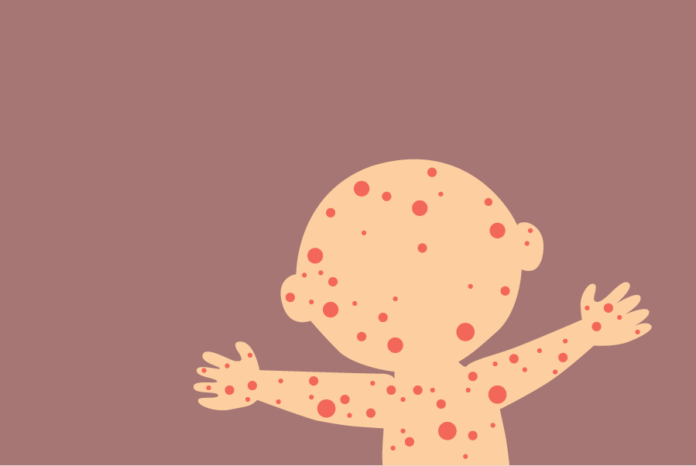Health advisories warn students, community members of measles outbreaks
For weeks now, health advisories have popped up at universities and schools across the state of California warning people about measle outbreaks. Students at UC Davis can click on an informative page directly connected to the school’s Student Health and Counseling Services website to receive more information on the infectious disease. The common questions now arising are why and how is this happening?
“Measles is spread by coughing or sneezing,” said Dean Blumberg, the chief of pediatric infectious disease at UC Davis. “It can remain infectious in droplets that are so small that they may remain suspended in the air for up to two hours after an infectious person leaves a room. So there doesn’t need to be person-to-person contact for a susceptible person to be infected. Measles can be prevented by immunization. It also helps to isolate any potentially infectious cases so that further spread does not occur.”
The viral disease was recently discovered to be present in Los Angeles and is spreading throughout the surrounding areas. Two more cases were confirmed and added to the growing list of patients on May 5.
Across two Los Angeles campuses — UCLA and California State University, Los Angeles — hundreds have been quarantined, and thousands have been alerted of the outbreak and spread.
Beginning on April 11, the first exposure that may have led to the alarmingly fast spread of measles was assumed to have happened at the the Cal State LA library between 11 a.m. and 3 p.m. Friday of that week, over 550 students and 106 staff members were told to stay home and avoid those under quarantine.
This one case then led to UCLA notifying its campus that the student claimed to have attended classes in two separate buildings on campus. This allowed the university to conclude that potentially 500 students and staff may have been exposed to measles. With measles being one of the fastest spreading and most contagious diseases, officials and public health advisors advised students and faculty to avoid the campuses.
“There are those freak incidents we hear about on the news every day,” said Asher Kraut, a second-year economics major at UCLA. “A shooting in Texas, a shooting in California or even H1N1 in Mexico — we all think there are those things that can never possibly happen to us, until they do. Unfortunately for that was the spring 2019 measles outbreak in Los Angeles. Due to the decisions of a select few, whom likely did not receive the vaccine as infants, I was placed at risk. There was a few students actually in my economics classroom whom were carriers of the disease, and the university was not made aware until much later on.”
The quarantine was predicted to last 21 days and was declared the largest quarantine in state history, according to the Los Angeles Times. The number of those quarantined has been dropping daily, but has nonetheless forced schools to require immunization records.
“The measles vaccine is safe and effective,” Blumberg said. “It’s the best way to be protected against measles. Measles is one of the most infectious diseases known to humankind — that’s why even one case is a cause for public health to be concerned. Before widespread measles immunization, about 2.5 million people died every year worldwide from measles.”
After nearly 400 people came down with measles in New York City, health officials implicated a $1,000 fine for those unvaccinated, leaving California officials to begin questioning what their next move should be to make sure individuals will not have to experience something like this again.
“Vaccination is the only way to ensure you and your family members will not get measles,” said Karen Smith, the director of the California Department of Public Health, to CNN. “Many countries are currently experiencing widespread measles activity. Make sure you and your family are fully vaccinated before traveling internationally.”
UCLA is currently offering free vaccinations. Kraut further described his experience with the alert from the Dean of Students at UCLA.
“Certainly, I was emotionally distraught for the next seven to 10 days as I anxiously awaited to find — or luckily not find — any symptoms on my body,” Kraut said. “I would wake up every morning wondering when my signs would show. Sure, I had the vaccine, but it’s 2019, diseases change [and] adapt, and I had no idea if I would be the next victim. To say completing schoolwork was impossible would be an understatement. The last thing I wanted to do was go to class and put others at risk as well, let alone have to sit there and listen to lectures that took a back seat in my brain. All in all, this was [and] is certainly an experience I will never forget, and hopefully will never have to experience again.”
Written by: Lauren Tropio — city@theaggie.org




